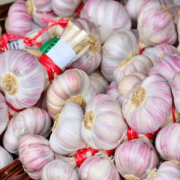Exploring the Garden for Beneficial Insects!
 Print This Post
Print This Post
By Jamie Fanous, Sustainable Agriculture Specialist
Like many, during these challenging times, I’ve turned to home gardening! I’ve used gardening as an opportunity to reconnect with nature and clear my head, all while staying close to home during the quarantine.
Interested in home gardening? Need to build a raised garden bed frame? Check out this amazing video on the NCAT YouTube channel with Jeremy Prater!
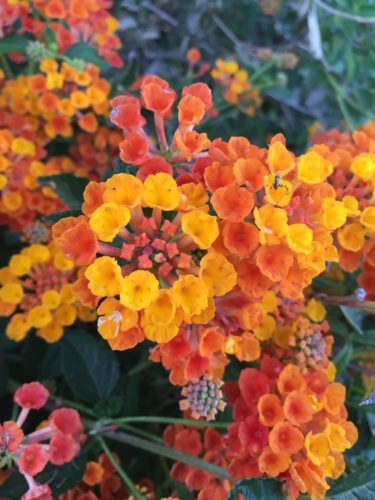 Over the course of these summer months, I’ve grown a variety of fruits and vegetables, including eggplant, tomatoes, melons, summer squash, zucchini, peppers, tomatillos, and even herbs and flowers. Since home gardening is often at a very small scale, it can allow for more time to dedicate to monitoring and tending. I’ve been able to carefully monitor my garden’s water moisture, soil quality, and plant health, as well as identify plant diseases, pests, and beneficial insects.
Over the course of these summer months, I’ve grown a variety of fruits and vegetables, including eggplant, tomatoes, melons, summer squash, zucchini, peppers, tomatillos, and even herbs and flowers. Since home gardening is often at a very small scale, it can allow for more time to dedicate to monitoring and tending. I’ve been able to carefully monitor my garden’s water moisture, soil quality, and plant health, as well as identify plant diseases, pests, and beneficial insects.
I’ve also maintained a variety of beautiful native plants such as ceanothus or California Lilacs, which serve as a valuable habitat for beneficial insects! Having various native plants, flowers, and herbs has been instrumental for the garden particularly for pest suppression and pollination. Insects like native bees, honeybees, butterflies, ladybird beetles, lacewings, and spiders are vibrant additions to the garden which have encouraged the fruits and vegetables to flourish and reduce pressure from damaging pests like aphids.
Interested in more information on beneficial insects? See the ATTRA publication, A Pictorial Guide to Hedgerow Plants for Beneficial Insects.
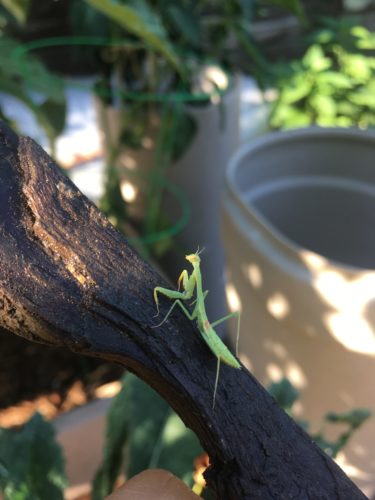 Since I began gardening I’ve seen so many exciting beneficial insects with one, in particular, standing out: the Praying Mantis (Tenodera aridifloia sinesis)! Known for its bulging eyes and head that can spin 180 degrees, the praying mantis is a valuable predator to have in the garden. The praying mantis has earned its name by the way in which it waits for prey, by folding its front legs inward, which appear as praying hands. The praying mantises are stunning predators and are valuable to the garden, however, they do not pick and choose their prey and have been known to consume both pests and beneficial insects.
Since I began gardening I’ve seen so many exciting beneficial insects with one, in particular, standing out: the Praying Mantis (Tenodera aridifloia sinesis)! Known for its bulging eyes and head that can spin 180 degrees, the praying mantis is a valuable predator to have in the garden. The praying mantis has earned its name by the way in which it waits for prey, by folding its front legs inward, which appear as praying hands. The praying mantises are stunning predators and are valuable to the garden, however, they do not pick and choose their prey and have been known to consume both pests and beneficial insects.
It has been an exciting journey tending to the garden and I look forward to continuing it. The fall is just around the corner, which means new vegetables to grow and new beneficial insects to discover!
Related Resources:
Build a Basic Wooden Raised-Garden Bed Frame
A Pictorial Guide to Hedgerow Plants for Beneficial Insects
Beneficial Insects You Want in your Garden – California Gardening

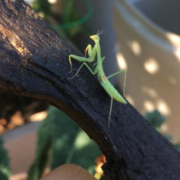
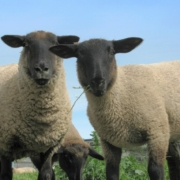
 NCAT
NCAT


